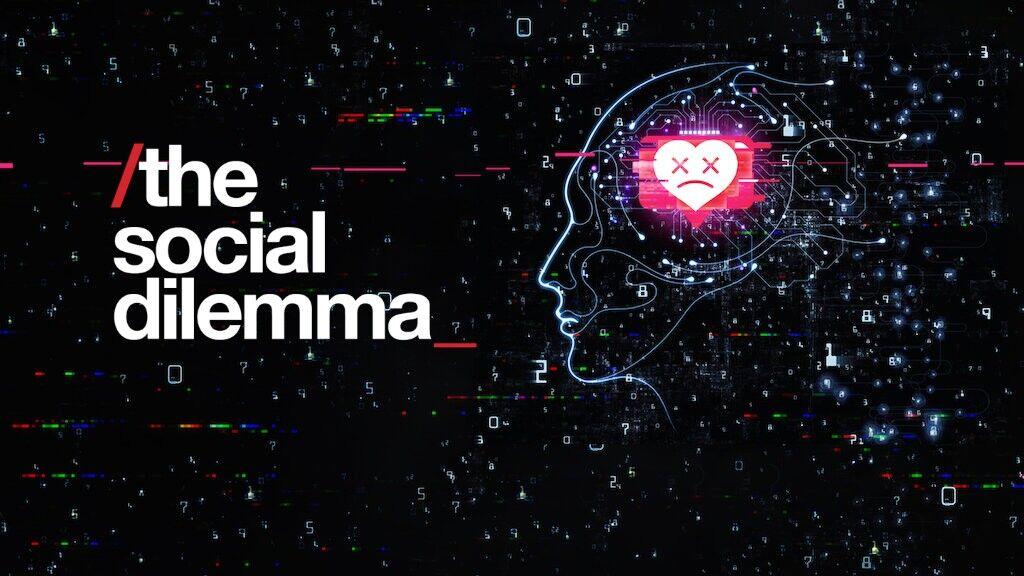Rev Rank: 4.5/5
“The Social Dilemma” forces you to open your eyes to what is going on in the social media and tech worlds. Minutes in, I started looking at my phone differently. Without getting 20 minutes into this documentary my hair on my arms raised. I had to pause the documentary every 30 minutes.
Ironically, I knew most of the information discussed prior to watching it. My curriculum this year is all about social media, branding and advertising. However, social media and I have always had a love-hate relationship. I believe firmly in accountability on our usage of social media. We should control social media and not allow it to control us. Social media is essentially an ‘upgrade’ from us playing Webkinz, Club Penguin and Neopets, but the virtual currency equates to likes and comments.
I see social media and tech companies as being in their Wild West phase. Companies are able to do whatever they want, and our laws simply cannot keep up. Our lawmakers don’t know what is going on. The average age of a member of the House of Representatives is 57.6 years and for Senators, it is 62.9 years, according to the Congressional Research Service.
I applaud “The Social Dilemma” for being so frank and to the point. The first 30 minutes gives a solid rundown of how we are the products. Our attention and the slight changes in us are what companies are paying millions for.
“Social media isn’t a tool that’s just waiting to be used. It has its own goals, and it has its own means of pursuing them,” Tristan Harris, a former Google Design Ethicist said around the 29 minute mark.
There is a culture of manipulation among us. Companies use the same things we love and turn them against us as a test for AI. One of the eeriest moments is when the same people who created these algorithms and programs said themselves that they could not stop using them.
“The Social Dilemma” also highlights the effect social media has on Generation Z. Our generation’s self-worth and self-esteem have been manipulated by this virtual reality created by tech designers. Yet, “The Social Dilemma” only focused on social media’s effect on mental health. They fail to acknowledge the other issues teens and young adults face outside of technology in the past decade.
The documentary also examines the effects that social media platforms have had on our political system. One take from it is that we are now more separated and divided than ever due to our feeds never prompting anything we disagree with. We are rarely challenged. This point goes back to the idea that we craft our identities online with everything we like from our hobbies to people.
Social media is feeding us our favorite things in a gluttonous, subtle way. “The Social Dilemma” slowly shows its audience how we are test subjects for tech companies to gain enormous amounts of money. Advertisers want our attention. The longer they have us on the app, the better.
It was difficult to critique this documentary due to my interest in it and its uncanny storytelling. But the dramatic scenes are when you can take a bathroom or snack break.
These PSA-esque scenes that played in between the tech experts and other casts members’ dialogue reminded me of the 2009 movie, “Cyberbully.” Honestly, the documentary could have done without the drama. There wasn’t much logic within these scenes.
Why didn’t Ben’s mom hide the phone or turned it off completely? Or stop Isla from smashing the Kitchen Safe container? It was only an hour and a few notifications. Cassandra fits into the ‘I’m-not-on-social-media-at-all-superiority-complex’ trope that anyone over the age of 35 seems to like in a young person.
“The Social Dilemma” is an eye opener no matter where you stand on social media. Even at the end of the documentary, the cast doesn’t say it’s evil. There needs to be a system of checks and balances and better ethical practices for social media. It is 90 minutes worth watching.
Remember if you are not paying for the product, you are the product.
Rev Ranks: ‘The Social Dilemma’ reveals how we are all guinea pigs for Silicon Valley
By Ariel Baise
September 22, 2020





